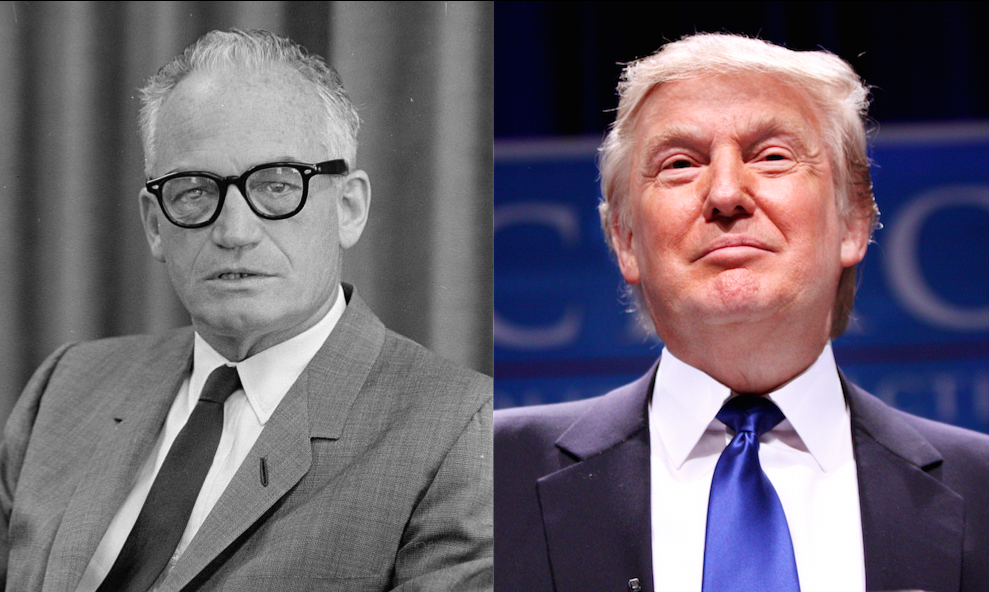France’s next presidential election is less than two months away with the first round set to take place on April 23. Marine Le Pen, leader of the most well-known French far-right party, Front National (FN), is currently in the lead. She is credited with 25% to 26% of the votes depending on the polls. Since the 2012 presidential elections, when Le Pen came in third with a score of 20%, behind François Hollande and Nicolas Sarkozy, her party has been gaining ground in France. During the 2014 European elections in France, in which voter turnout was at an all time low of 42.43%, the FN came out first, with 24.86% of the votes. In the 2015 regional elections, none of the FN candidates were able to win over a French region, but regardless of the re-alignment of traditional parties, some lost by very small margins. These results portray a clear trend: the FN is slowly gaining ground in France, at the expense of traditional parties such as the Socialist Party (PS) or the right-wing ‘Les Républicains’. However, just as Jean-Marie Le Pen lost to Jacques Chirac in the 2002 presidential elections, most polls predict Marine Le Pen is likely to lose the second round of the elections as other parties will rally behind her opponent. Nevertheless, with reported weaknesses of fellow presidential candidates, it may be that Le Pen will secure a higher score than expected.
François Fillon and Emmanuel Macron
Running as the candidate of the conservative right, at the head of the ‘Les Républicains’ party, is François Fillon. At the centre of the French political scene, claiming to belong neither to the right nor the left, is Emmanuel Macron, founder and leader of the ‘En Marche!’ party. According to a recent ‘OpinionWay’ poll, Macron is likely to arrive second in the first round of the election with 23% of the votes, and François Fillon will come in third with 21%. The same poll also predicts that whoever comes second will be able to win over Le Pen in the second round, by a margin of approximately 20%.
However, setbacks in the Fillon and Macron candidacies may discredit the two opponents in the upcoming weeks. Fillon has been accused of hiring his wife for a fake job as an assistant, for which she was paid approximately €900,000 from 1998 to 2012. Last week, the French financial prosecutor’s office began an official investigation, which could seriously undermine Fillon’s candidacy. Fillon himself has prematurely declared that he would withdraw his candidacy if charges were brought against him.
On the other hand, Macron seems set to win the elections if he manages to make it to the second round. He recently received the support of François Bayrou, a well-known centrist who ran in the 2002, 2007, and 2012 French elections, and has decided to join forces with Macron in this year’s elections. His support is credited to around 5-6% percent depending on polls, and may provide Macron with a decisive advantage over Le Pen or Fillon. However, Macron’s popularity may dwindle in the coming month as he finally reveals his presidential programme, which could either attract more voters or do just the opposite. Recently, Macron has also made several declarations, for example claiming that opponents of gay marriage had been humiliated during Hollande’s presidency, and that French colonization was a crime against humanity. While such declarations are clearly attempts to attract more voters, they may instead discredit Macron in the eyes of different voter categories.
Benoit Hamon and Jean-Luc Mélenchon
In fourth and fifth place are Benoit Hamon and Jean-Luc Mélenchon, respectively candidates for the Socialist Party (Left) and ‘La France Insoumise’ party (Radical left). Hamon recently joined forces with Yannick Jadot, previous candidate of the Europe Ecology – The Greens party. Together, they are projected to obtain 15% to 16% of the votes. Mélenchon is currently expected to earn 11% of the votes.
At this time, it appears both candidates are unlikely to make it to the third or second place in the first round. As Hamon is also running as the head of the Socialist Party, with a progressive platform centered around the idea of creating a universal basic income, he is likely to face difficulty detaching himself from the legacy of Hollande’s presidency in the eyes of the voters. In turn, Mélenchon’s base of support is quite limited and unlikely to grow enough to surpass that of Macron or Fillon in the coming weeks. With numerous similarities between their programmes, both parties could potentially come to an agreement and rally behind a single candidacy, enabling them to easily make it to the second round of the elections; however, such an agreement has yet to be reached.
France’s next President
The coming weeks, and the first televised debate set to take place on March 20, will be crucial in determining the outcome of the first round of the presidential elections. Following the unexpected results of the Brexit referendum and the American elections last year, it is clear that current polls can only be trusted to a limited extent. Le Pen’s lead for the first round, or her supposedly automatic defeat in the second round of the elections, are only predictions that have yet to be proven. More importantly, game-changing events such as a merger of Hamon and Mélenchon’s candidacies or the withdrawal of Fillon’s candidacy, may still happen. It thus seems reasonable to say that nothing in this race is certain.
Photo: Élysée Palace (2007), by Thomas Faivre-Duboz via Wikimedia Commons. Licensed under CC BY-SA 2.0.
Disclaimer: Any views or opinions expressed in articles are solely those of the authors and do not necessarily represent the views of the NATO Association of Canada.




